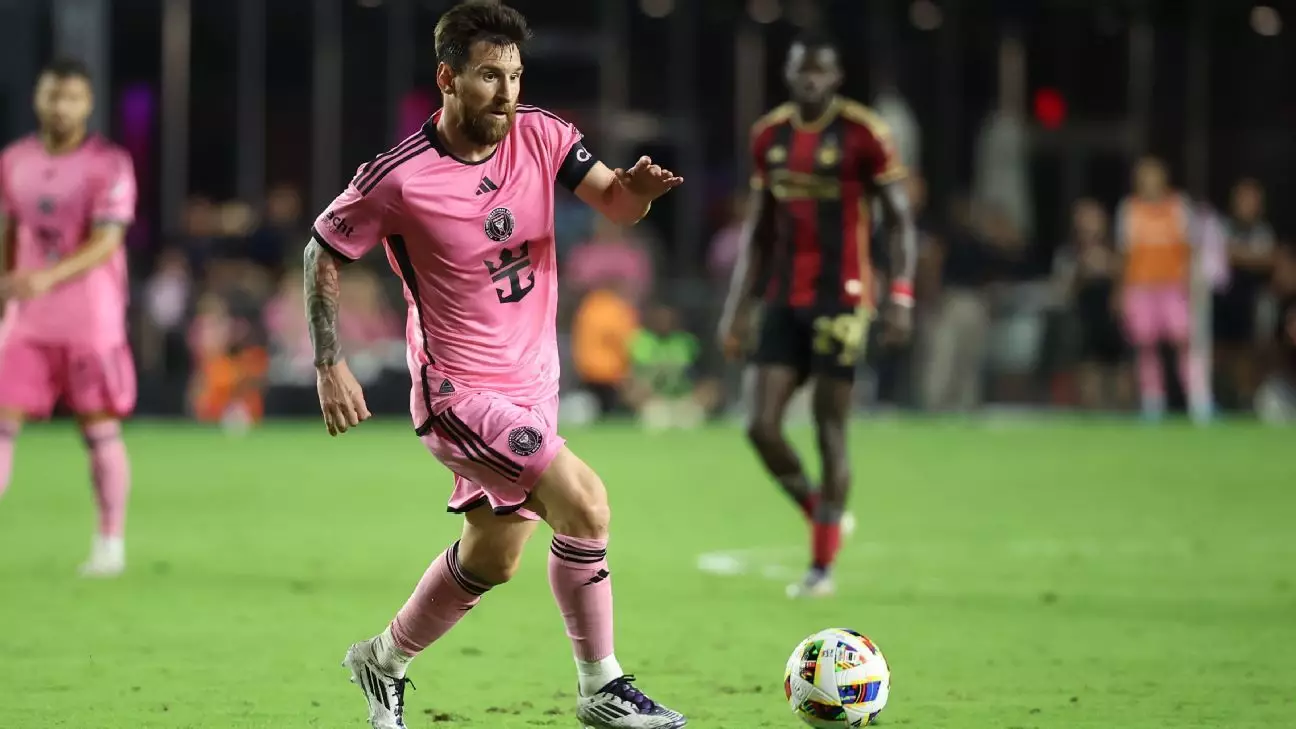The arrival of soccer superstars Lionel Messi, Sergio Busquets, Jordi Alba, and Luis Suárez at Inter Miami created a frenzy among fans and analysts alike. Many touted this roster as a transformational moment for Major League Soccer (MLS) in the United States, with Jorge Mas, the managing owner, boldly proclaiming, “We have (already) succeeded.” His statement encapsulated the excitement that surrounded the franchise as they attracted global attention and elevated the expectations of fans. However, as the dust settles on the 2024 season, a deeper exploration reveals a complex narrative where commercial success does not necessarily equate to on-field triumph.
While the impact of high-profile players can galvanize a fan base and attract sponsorships, it can also burden a team with overwhelming expectations. Inter Miami, despite breaking the MLS single-season points record and clinching the Supporters’ Shield, faced scrutiny following their startling playoff exit against Atlanta United. This abrupt conclusion raises critical questions about how success should be defined within the league. In the competitive ecosystem of sports, tangible achievements, such as trophies and playoff success, often overshadow the flashy signings and commercial feats.
Messi’s presence certainly raised the profile of the franchise, expanding its visibility both domestically and internationally. However, the sobering reality for Inter Miami is that their historic regular season ultimately did not transition into postseason success. For a franchise invested in building a legacy, the gap between what was hoped and what ultimately materialized is more than mere disappointment; it is a cautionary tale about aligning expectations with reality.
To contextualize Inter Miami’s achievements—and their ensuing struggles—it is helpful to examine similar monumental seasons in MLS history. Take, for instance, Toronto FC’s treble-winning campaign in 2017, where their three trophies were complemented by numerous accolades that outlined a robust strategy both on and off the pitch. The success of that Toronto squad was not just a result of star power but of a cohesive unit that maintained peak performance through a mixture of star talent and depth—attributes that are essential for sustained success.
In contrast, while Inter Miami showcased flashes of brilliance, especially during the regular season, their lack of depth and consistency in critical matches became apparent in the playoff rounds. Teams like D.C. United in 1998 or LAFC in 2022 demonstrate how high-scoring talent needs to be matched with foundational stability and depth to perform successfully when it matters most.
A running theme in MLS has been the distinction between outstanding regular-season teams and those capable of thriving during the playoffs. As evidenced by Atlanta United’s formidable 2018 season, where they combined an explosive regular-season performance with playoff resilience, success in MLS often requires a dual competency. Inter Miami’s historically effective regular season made them fan favorites, but their struggles in critical moments during playoffs prominently illustrated their inability to compete at that level.
Even with immense talent on the roster, the failure to replicate regular-season dominance in the postseason raises valid discussions among fans and analysts alike. Their playoff exit left a bitter aftertaste and further emphasized that building a winning culture involves more than an influx of high-profile players; it necessitates integrating those players into a system conducive to winning under pressure.
Looking ahead, the question marks for Inter Miami are plentiful. Can they retain the stardom that flavors their roster while cultivating a more cohesive team that can deliver in high-pressure scenarios? The organization’s ability to adapt in the wake of this season will be paramount. Transitioning from a team that excels in the spotlight to one that shines brightest in the most critical moments of the season will take both strategic adjustments and mental fortitude.
Despite the frustrations faced in 2024, one cannot overlook the foundational work being laid for future success. The potential for growth remains high, with lessons learned from past failures likely to steer managerial and player decisions. In the unforgiving world of MLS, success is often cyclical, and teams have shown resilience to rebuild and redefine their narratives in rapid succession.
While Inter Miami’s 2024 season undeniably left room for disappointment concerning playoff outcomes, it simultaneously harbors potential for monumental growth. The challenge ahead for the franchise lies not just in maintaining its star-studded roster but in embedding a deeper winning mentality that could change the landscape of the franchise and, perhaps, the league itself. The echoes of this season will linger, serving as a motivation to re-align their aspirations with the tangible results on the pitch. For now, Inter Miami stands at a crossroads between the glitz of superstar signings and the gritty reality of achieving greatness through consistent, high-stakes success.
